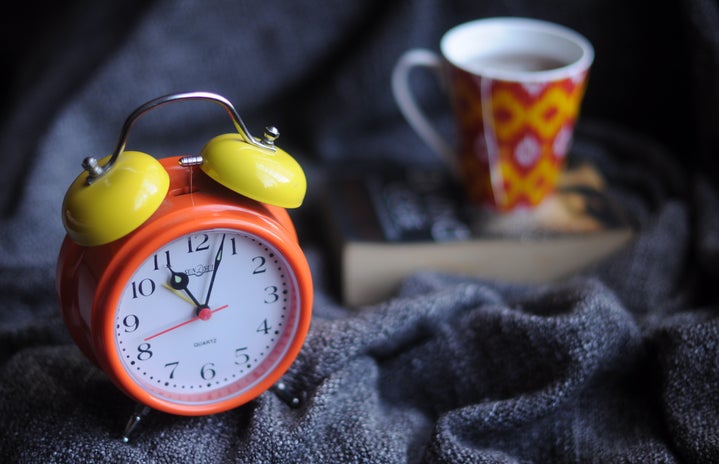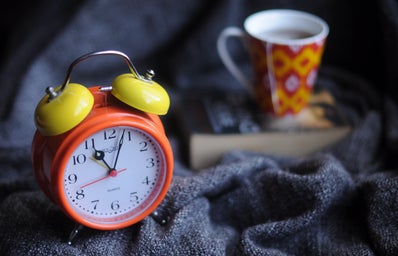We all know the implications of chronically bad sleep: worse moods, lower productivity, poorer health and so on. But as a student, I also find it extremely hard to prioritise sleep — my dream of an 8-hour sleep is often shattered by an 11p.m. project meeting, some urgent deadline, or a friend’s party that I don’t want to miss.
But just a week ago, after days of really bad sleep, I found myself having no energy to do anything and on the verge of an anxiety attack. I knew I had to make some serious lifestyle changes, so I decided to try several sleep hacks first, and see which ones can truly improve my sleep and kickstart a good routine of rest.
To make things a bit more fun, the hacks I’ve chosen range from normal advice you can get from almost anyone, to tricks that make you go, “Wait, what?” But to keep it safe, I excluded intrusive methods like taking medication. I also won’t be using expensive, advanced equipment like breathing masks or weighted blankets.
I’m measuring my sleep quality using the app Pillow, which records my sleep sessions and analyses how much light, deep or rapid eye movement (REM) sleep I’ve gotten.
A Pillow app interface
1. No phone or laptop before bed
- Time asleep: 7h 54m
- Sleep quality: 74%
- My rating: 9/10
Blue light is a wavelength of visible light emitted by LED and fluorescent lights, and electronic devices, which can suppress our body’s production of melatonin (the hormone responsible for sleepiness), make us feel more alert and affect our circadian rhythm. This is why experts often recommend dimming such lights and switching off your phones, laptops and tablets when it gets dark, or wearing blue-light-blocking glasses if you really have to use those devices.
I started off the week with this hack because while it’s the one of the most common sleep advice I get, I absolutely hate the sound of it. I often find myself alert and restless before bedtime, so I’m used to watching TikTok or YouTube to exhaust my energy so I can sleep.
Having tucked my phone away at 9:30 p.m., I sat on my bed, amused at how I couldn’t think of anything else to do. I ended up reading a book just out of pure boredom. Strangely, although I didn’t feel myself getting tired, when the clock struck past 11 p.m., I drifted off to sleep with ease. I woke up at about half past 7 feeling quite rejuvenated.
2. 4-7-8 breathing
- Time asleep: 6h 48m
- Sleep quality: 73%
- My rating: 6/10
Based on the ancient Pranayama yoga practice, the 4-7-8 breathing technique has been widely used for relaxation and stress relief. A detailed guide to the technique can be found here; but to put it simply, this involves inhaling through your nose for a count of four, holding the breath for a count of seven, and then audibly exhaling through your mouth for a count of eight.
Compared to hacks that require you to set up something, this technique is much easier to access. Aside from the calming effects of mindful breathing, counting 4, 7 and 8 over and over again definitely also helped me get sleepy (perhaps it’s a similar mechanism as counting sheep?) Funny thing was, at one point I almost fell asleep during the breath-holding part, and ended up gasping for air; luckily I still managed to fall back to sleep soon after.
One thing to note: I slept quite late, at 1:42 a.m., because I’d taken a nap in the afternoon, so that may have affected my sleep quality. Still, I think this hack might be helpful for people who struggle with racing thoughts before sleep, since it somewhat resembles meditation.
3. Try to stay awake
- Time asleep: 6h 11m
- Sleep quality: 73%
- My rating: 5/10
You didn’t read it wrongly — this hack uses “paradoxical intention” where you “try not trying”. The rationale is that the more anxious you feel about trying to fall asleep, the harder it actually is to do so. So it’s supposedly more effective to attempt to stay awake instead, which allows you to fall asleep involuntarily, rather than actively trying to put your brain in slumber mode; after all, it’s more tiring to stay awake. And this has actually been proven in a study.
To try to stay awake, I set up my laptop to do some work late into the night. Although I did become sleepy, I also ended up scrolling on my phone for 1 or 2 hours, which was not ideal. While I could kind of see how this might work — it felt like when you try to pull an all-nighter for an assignment but end up dozing off — in the end, this hack made me sleep later than I would’ve liked, at about 2 a.m..
Turns out, the sleep study that validated this method had asked participants to just lie awake in bed, without phones or laptops. So the key is to let your body fatigue naturally, rather than occupying yourself with even more stimulating activities like watching TikToks. You also have to keep reminding yourself that you’re pretending to stay up in order to fall asleep, which isn’t that easy to do. So although I liked the sound of this hack, it didn’t really work for me.
4. Eat breakfast for dinner
- Time asleep: 6h 14m
- Sleep quality: 72%
- My rating: 6/10
I came across this strange hack online and was instantly intrigued. The rationale behind it is that the nutrients commonly present in (western) breakfasts, such as protein in eggs, magnesium in bananas and blood-sugar-regulating carbohydrates in toasts, can aid sleep.
This was probably the hack I was most looking forward to, because I love breakfast foods. At 6 p.m., I made myself a few slices of butter-toasted rye sourdough, topped with avocado, scrambled eggs, or peanut butter and jam. It was a fun and delicious dinner, to be sure, although I’m not entirely sure it made a huge difference on my sleep. I fell asleep at about 1 a.m. as I normally do, and didn’t feel too much of a difference. Perhaps I should have eaten a banana, too?
5. Immerse your face in very cold water for 30 seconds (Huffpost)
- Time asleep: 5h 58m
- Sleep quality: 68%
- My rating: 7/10
This hack is supposedly based on the Mammalian dive reflex, whereby our body responds to submersion in cold water by decreasing the heart rate and blood pressure, which in turn calms down the nervous system. Remember when people told you to “splash your face with cold water” when you’re in a state of anxiety or panic? They have a point.
By the same logic, this might also work on people who feel too anxious or restless to sleep, by forcing their body to cool and settle down. So before I went to bed, I found a huge bowl that I could fit my face in, filled it with water, added in some ice cubes, held my breath and immersed my face in it for 30 seconds.
Frankly, I was sceptical at first, because I often associated cold water with staying alert, and it did feel weird to do this in the middle of the night. However, after about 10 minutes, I actually felt my body calm down and long for sleep, naturally yet pretty strongly. Although my sleep quality didn’t turn out to be high, I was impressed by how this hack actually worked.
6. Blow bubbles
- Time asleep: 6h 7m
- Sleep quality: 72%
- My rating: 5/10
Finding the 4-7-8 technique too boring? Well, blowing bubbles might just help. According to neurologists, this acts as a deep breathing exercise, which we know is beneficial for soothing our body and our mind. Besides, the “silliness” of this childish hack can distract you from those “adult life” worries that keep you awake at night.
I had to buy some bubble blowing toys for this hack, which meant that it was logistically a little more costly than others. Nonetheless, I had a fun few minutes blowing bubbles in the shower, feeling like a kid again. Needless to say, I took deep and controlled breaths. However, this didn’t seem to translate into vastly better sleep quality; so while I would recommend blowing bubbles without any apparent reason, I’m not sure if I could safely say it helped with my sleep.
My verdict?
After 6 days of trying stranger and stranger tips to bio-hack my sleep, I have come to the (unfortunately boring) conclusion that the best hack is still the first one — no blue light before sleep. I think the only drawback is that it requires us to give up our “unwinding” time on social media or Netflix before bed; but I say it’s worth it — if “unwinding” with blue light devices leads to bad sleep, it won’t be beneficial to your health in the long run anyway.
As for the other hacks, I think it’s harmless to give them a try, if only to become more aware of your own sleep cycle and lifestyle habits you have that might be hindering quality rest. I hope this article has given you some ideas to start with.
Sleep tight!


